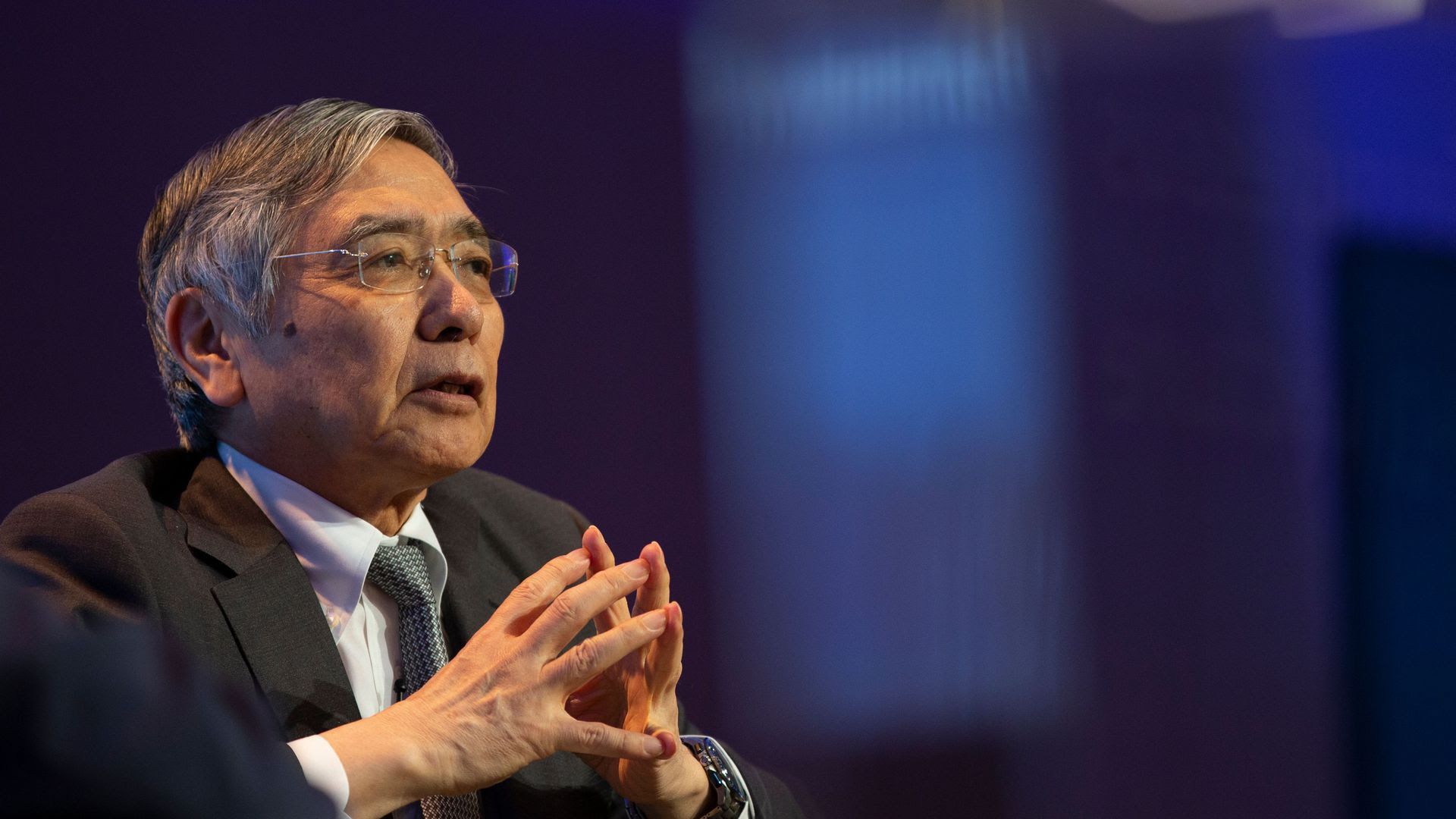The future of monetary policy comes to Washington
Add Axios as your preferred source to
see more of our stories on Google.

Bank of Japan Governor Haruhiko Kuroda. Photo: Alastair Pike /AFP/Getty Images
As the Fed approaches a likely rate cut at the end of the month — in the face of 50-year low unemployment, rising wages and strong consumer spending — it could not have been a better time for a visit to Washington from Bank of Japan Governor Haruhiko Kuroda.
What it means: Kuroda has instituted some of the world’s most extreme and unorthodox monetary policies, including directing the central bank to buy Japanese stocks. More analysts are starting to believe such policies will be adopted in other places, including the U.S.
- "Most economies have been experiencing low inflation and low growth since the global financial crisis," Kuroda said in a speech Monday at IMF headquarters in Washington. "Japan’s experience in the long battle against deflation could provide a case study for other central banks in conducting monetary policy going forward."
Catch up quick:
- BOJ owns around 50% of Japan's government bonds — the world's largest single holder, by far (for comparison, the Fed holds about 10% of U.S. government bonds).
- BOJ has even bought Japanese corporate bonds and owns around 80% of the country's ETFs.
- BOJ's yield curve control program seeks to hold 10-year yields near 0%, effectively directing what is supposed to be a free market.
- It was the first central bank in the world to introduce negative interest rates.
- The central bank holds over $5 trillion of assets on its balance sheet, which is more than Japan's GDP, and the country's outstanding public debt is more than 5 times the size of its economy.
"We live in a time where the book on monetary policy continues to be rewritten ... just about every day," IMF acting managing director David Lipton said. "Of course, all serious monetary policy students will have read the book on Japan."
What's next: “If the ECB is really going to try to restimulate the economy in Europe, they are going to have to buy equities,” BlackRock CEO Larry Fink said on CNBC Friday.
- "As soon as an unexpected event takes the market down hard and fast, we believe this will trigger the next wave of buying from central banks, but this time directed at stocks," Yves Lamoureux, president and founder of behavioral research firm Lamoureux & Co., tells Axios.
- That will certainly include the Fed, Lamoureux says.
The last word: Asked whether it would be a good idea for other central banks to follow his lead, Kuroda said that in light of the current economic environment, "that might be the case."
Go deeper: The global economy's road to "Japanization"
